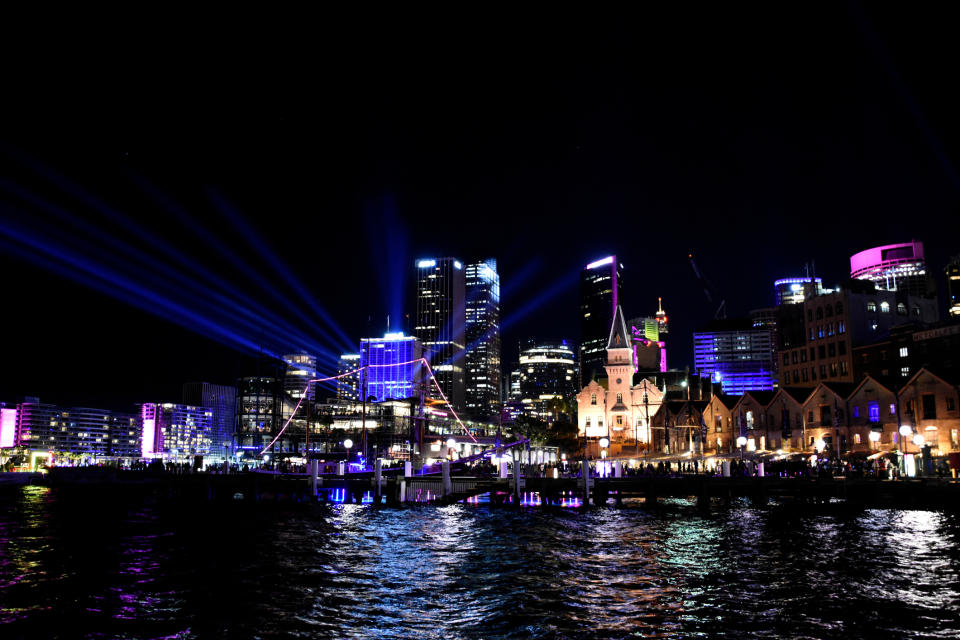$16 billion: That’s how much Sydney’s lock-out laws have cost the city’s economy

There’s now a price tag on former NSW Premier Barry O’Farrell’s wildly unpopular Sydney lock-out laws: $16.1 billion.
That’s how much money Sydney’s night time economy (NTE) is missing out on.
According to a new report by Deloitte Access Economics, Sydney’s NTE – the “strongest and most concentrated in Australia” – is worth more than $27 billion per year, but could’ve been worth $43.3 billion.
Australia’s night time economy makes up less than 4 per cent of our overall economy, but makes up around 6 per cent of other economies such as the UK’s.
“If we aimed for 6 per cent, and nurtured and supported night-time infrastructure and activities more effectively, we estimate the annual value of Sydney’s night-time economy could be more than $43 billion across increased spending, and more employment and tourism,” said Deloitte Access Economics partner and report co-author Kathryn Matthews.

So how do we boost Sydney’s economy? Surely the solution is to get rid of the problem that caused it all, the lock-out laws?
Sydney’s lock-out laws, which sees patrons locked out of bars from 1:30am and last drinks at 3am in Sydney’s entertainment precinct, were introduced by O’Farrell five years ago with the aim of curbing violence fuelled by alcohol.
But Deloitte’s experts don’t think the solution needs to mean more access to alcohol.
“A more vibrant, inclusive, attractive night time economy does not necessarily mean having a bar on every corner,” the report said.
“A narrow focus on drinking culture serves only to define night as a negative space, where crime and conflict are some of the associated potential risks, with a corresponding need for regulations and restrictions.”
The solution is to treat planning for Sydney’s NTE like our day-time economy: rather than being reactive and restrictive, there should be “a strategic, planned and open process”.
The approach needs to shift from merely regulation of Sydney’s drinking culture to facilitation of a strong social environment and urban culture, Deloitte’s experts pointed out.
Here, the government have a major hand to play in creating policy that will stimulate and support a vibrant night-life.
“Planning and licensing that encourages initiatives like late night gallery and museum hours, live music or comedy and smaller bars with a different culture to one solely focused on drinking is important.”
A vibrant nightlife is in corporate Australia’s interests
The war for talent is being waged in just about every sector – but there’s no hope of attracting and retaining great talent if Sydney isn’t a great place to live.
“A more innovative workforce is built on exposure to the arts and culture, and the richness of a city’s arts sector is crucial to attracting and retaining talent,” Matthews said.
Expats who work in Sydney expect a vibrant and exciting nightlife.
“Sydney can’t compete for talent on the world stage without fantastic after-dark fun and 24-hour amenities,” the report said.
“There is an advantage for corporate Australia in contributing to the creation of energetic, interesting night time zones to active Sydney’s NTE.”
For example, big businesses could strike up partnerships with arts and culture or community groups to extend opening hours, or vocalise their support for a stronger NTE.
Author’s note: A former version of this story incorrectly stated that it was former NSW Premier Mike Baird who introduced the Sydney lock-out laws. This has now been amended to state that his predecessor Barry O’Farrell introduced them.
Make your money work with Yahoo Finance’s daily newsletter. Sign up here and stay on top of the latest money, news and tech news.
Now read: The two words you need to know to understand the federal election
Now read: Australia’s unwinding construction boom will lead to mass job loss
Now read: Struggling Aussies to receive cheap NBN under bold new plan

 Yahoo Finance
Yahoo Finance 
